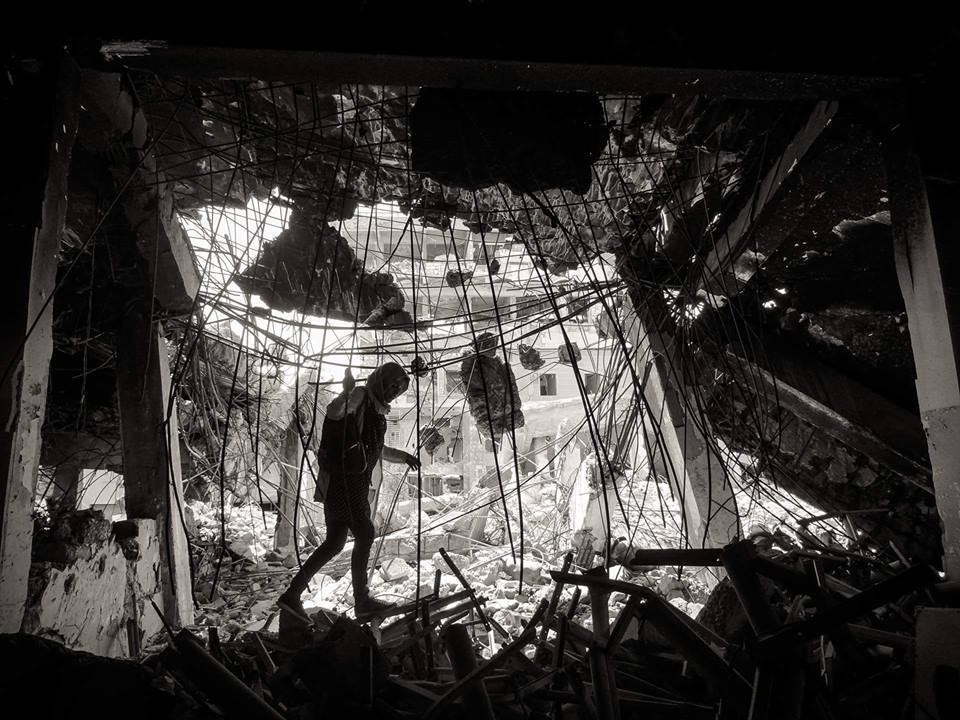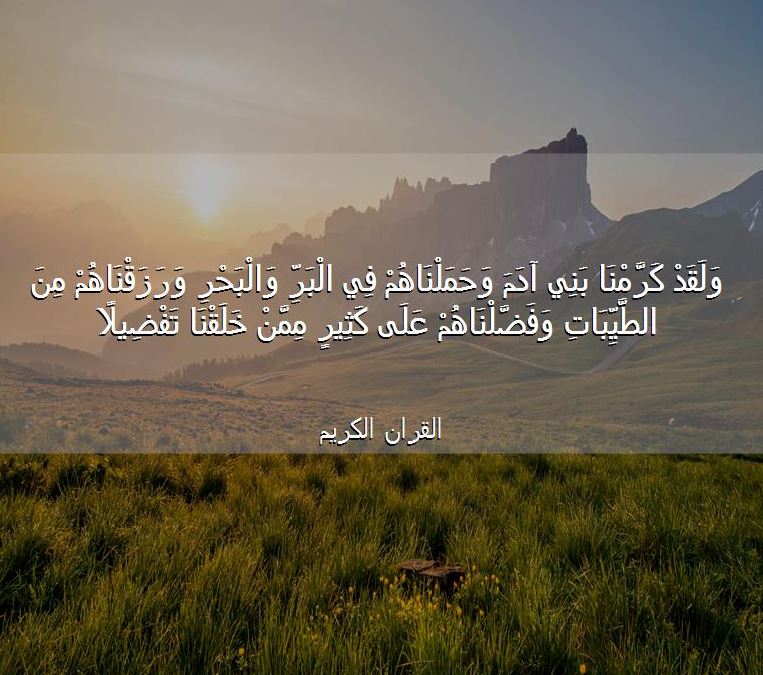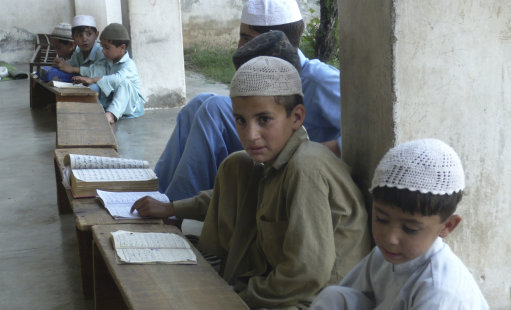
Islam can be interpreted and lived out according to the values of modernity and respect for inalienable universal human rights. Rearguard actions, launched by Islamists and governments to exploit religion for political and ideological purposes, stand at odds with the spiritual fulfilment sought by every honest, consistent Muslim.
BY ABDELMAJID CHARFI
MUSLIMS POINT to the damage caused by delay in the updating of religious thought in four broad areas:
1 – Political regimes, particularly in Arab countries, are fragile, autocratic and despotic. This is driving them towards instrumentalising Islam in favour of a fake religious legitimacy. Such regimes therefore only find themselves challenged by an equally religious escalation that also seeks power. All of this locks the fate of societies into a vicious circle.
2 – Archaic means of production still predominate. These are signs of a subsistence economy based on agriculture, small trade and handicrafts. In certain countries oil revenues have been grafted onto these archaic modes in a way that only masks problems of underdevelopment and delays crucial structural reforms. As a consequence, a process of general industrialisation has yet to develop attitudes that could have brought about a new way of looking at the world.
3 – The situation of culture and education is worrying. An almost ubiquitous censorship and high level of illiteracy have meant that the number of books and translations available remains dramatically low. Scientific research is rudimentary, and the few public libraries that exist are badly stocked. Enrolment rates are high and consistent with international levels, but the content of the curricula and the methods of instruction prioritise memorisation over reflection or the development of critical thinking and initiative. As a result, the at times quite significant financial incentives made at the state level barely produce the desired results. With the notable exception of Tunisia, where Islamic thought is supported in university arts faculties with the application of the methods of the humanities, religious education is universally of a dogmatic nature and monopolised by representatives of the official, traditional establishment.
The primary task is to re-define the status of the Qur’ān
4 – The patriarchal family structure – albeit shaken by accelerated urbanisation, persists. Clan solidarity and regionalism are still very strong and at times bolstered by confessional, linguistic and ethnic affiliations. One field where progress is undeniable is health – and the result of this has been a population explosion that is soaking up the advantages of the meagre level of development that has taken place instead of raising living standards in any tangible way.
One should not lose sight of these conditions when discussing issues relating to Islamic thought. The first of these conditions is a relationship with tradition in its broadest sense. It is well understood that this forms the basis of socialisation in traditional societies, where knowledge, life skills and know-how are acquired and transmitted as part of the family, the group or the tribe. Religious beliefs and the rituals that serve to support them are part of that which is learned and practised in strict compliance to form and content. They take on the character of proof that acts to cement social relations and immunise them from any challenge to their sanctified status.
But this tradition in Muslim societies has been brutally called into question as a consequence of contact with Western imperialism. Having undergone the shock of modernity and being scarcely prepared for all manner of transformations that came with it, the process of adaptation is all the more difficult and provoked mixed reactions, ranging from fascination to outright rejection.
In the religious sphere, which interests us here, the primary task is to redefine the status of the Qur’ān. Is it, as the tradition maintains, a divine text in both content and form, one that was supernaturally dictated to the Prophet Muhammad whose role was that of a passive transmitter? Or, being communicated in a human language, is the Qur’ān something for the believer that is divine in its origin and inspiration, but on the other hand human too, inasmuch as the personality and culture of the Prophet and the conditions of his own life and those of his and community, could not fail to intervene in the elaboration of the sacred text?
It is often forgotten that the Qur’ānic discourse is an orally-transmitted discourse. This feature is evident in the official corpus where in the ‘Uthmanic mushaf it was ‘brought together’, as the sacralised terminology puts it, some 20 years following the death of the Prophet. The Qur’ānic ‘readings’, orthodox or not, and the variants in the text that were scrupulously recorded by the scholars of the 3rd and 4th centuries AH (9th and 10th centuries AD), bear witness to what was often and in many ways is an arbitrary transferral of the oral discourse to a written form, and one that was in large part dependent upon memory.
It is often forgotten that the Qur’ānic discourse is an orally-transmitted discourse
Given that the circumstances of the original discourse were lost to generations not contemporary to the revelation, the relationship to the sacred text has changed and the mushaf thus became susceptible to a limitless number of interpretations. Of all these potential interpretations only those which corresponded to the pre-occupations of their authors, their societal values, and in general to historical conditions, are the ones that have become imposed, to the point even of granting a single, exclusive meaning to the Text. In other words, the interpretations of the Qur’ān that have come down to us in these earliest exegeses from the 3rd century AH primarily reflect the practical concerns of Muslims subsequent to the era of the conquests and the establishment of an empire.
When reconsidering Islam today, the priority is therefore to take consciousness, and raise awareness, of this historical process and deconstruct it. But it is no easy matter to penetrate through the dense layers of interpretation and manipulation overlaid upon the text and get to the original message and grasp all of its richness. One has to comprehend it in its entirety – in its intentions and not in its circumstantial injunctions.
Such a deconstruction would first of all call into question the widespread notion that the first generations of Muslims, the pious ancestors (al-salaf al-sālih), had a better knowledge, and superior application, of Islam’s precepts. Indeed, the early Muslims in charge of implementing what they understood of Islam could only do so against a background of the social and cognitive systems that were available to them. Their solutions were dictated by demands which we no longer share. Therefore to attempt to conform to them today is tantamount to severing the link between religion and life.
When evaluating Islam today it is consequently vital to unmask the misleading nature of these traditions which purport to reflect the will of the Prophet, but which of necessity can only be representations influenced for good or ill by historical factors that may be analysed by modern methods of social science. I dare say that a new interpretation of the Qur’ān is not only possible but more faithful to the spirit and the ultimate purpose of the Prophet’s message.
A new interpretation of the Qur’ān is not only possible but more faithful
Without questioning the good intentions of the scholars of classical Islam, we can see that they laboured under a mental alienation that prevented them from facing up to reality in all its bareness, and from admitting the fragility of the human social order. If these ancient scholars needed to internalise the sacredness of the social institutions of their time – particularly in the regulation of sexual relations by ordering them within the family unit, and in the religious legitimisation of political power – the modern Muslim must be aware of the realities of our own time which demonstrate the impossibility of returning to these traditional norms and practices. In this vein we only need pause a while to examine the relationship between men and women which, along with political power, is something central to Islamist preoccupations. Fundamentalists are haunted by the female body. They fantasise about physical female attributes but obscure from view the human, personal and intellectual dimensions of womankind. There is no need to have recourse to feminist theories to confirm the uneven terrain which affects all members of traditional societies without exception, and under which women are placed in all cases at the bottom of the social ladder – just above the level of slaves – with rights and duties set at a lower level than those of free men.

Suggested Reading
The revival of religious discourse – the missing human dimension
Today, Islam can be interpreted and lived out according to the values of modernity and respect for inalienable universal human rights. Rearguard actions, launched by Islamists and governments alike to exploit religion for political and ideological purposes, stand at odds with the spiritual fulfilment sought by every honest, consistent Muslim. They are also at odds with the entirely untroubled, multiform ways that the majority of Muslims live an open and tolerant Islam, one that is neither dogmatic nor ritualistic, nor legalistic nor literalist. And it is here, without doubt, that one can see signs of hope that are worth cultivating and encouraging.
Main image: Man attempting to rebuild a library burnt down by ISIS



